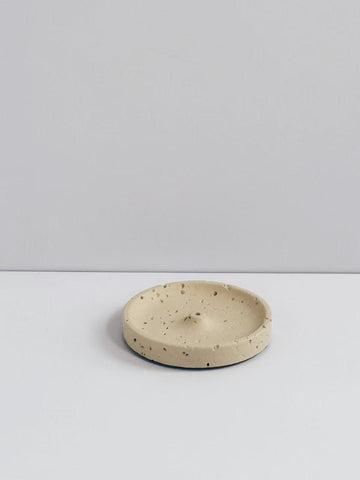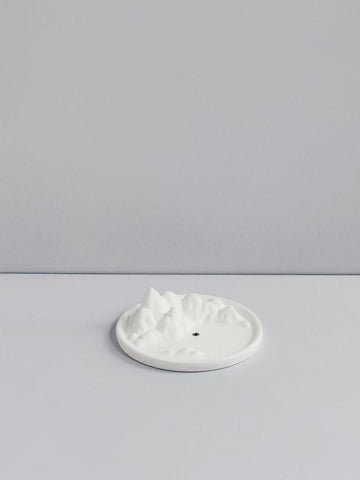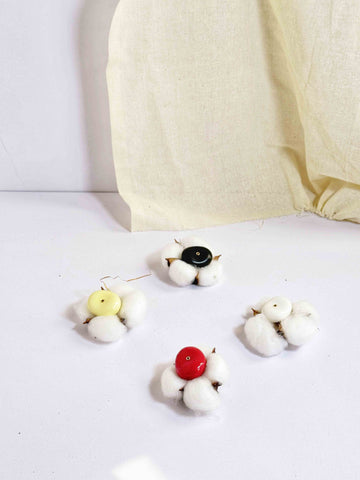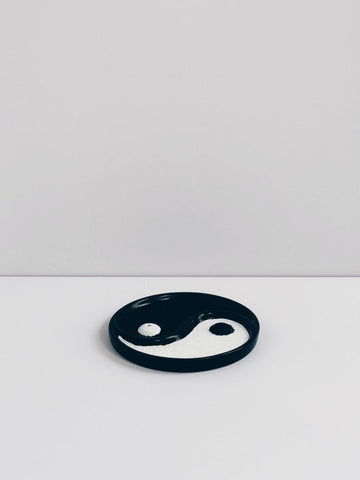Throughout human history, few spices have held such a revered position across cultures and continents as clove. Known scientifically as Syzygium aromaticum, clove (sometimes referred to as chicken tongue spice or "Ji She Xiang" in Chinese) is far more than just a cooking ingredient. From the Spice Islands of Indonesia to the imperial courts of ancient China, clove has been prized for its aromatic strength, medicinal properties, and cultural symbolism. But what exactly are cloves, and why are they so deeply intertwined with traditions like incense making? Let us explore the fascinating journey of this extraordinary spice.
The Origin and Etymology of Clove
The word "clove" derives from the Latin term Clavus, meaning "nail," a fitting description given the spice's small, nail-like appearance. Indigenous to the Maluku Islands, also known as the "Spice Islands" of Indonesia, cloves have been an integral part of trade routes since ancient times. The Maluku Islanders considered cloves sacred; it was a long-standing tradition to plant a clove tree upon the birth of a child, with the child's fate said to be linked to the health of the tree.
Historically, the Maluku Islands' monopoly on clove production drew explorers and empires from far and wide. European colonial powers, including the Portuguese and the Dutch, fiercely competed for control over this valuable commodity. Even today, Indonesia remains the leading producer, responsible for approximately 80% of the world's clove production as of the early 21st century, followed by countries like Tanzania, Madagascar, and Sri Lanka.
Botanical Characteristics of Clove Trees
Clove is a tropical evergreen tree that can grow between 10 to 20 meters tall. It features oval-shaped, leathery leaves that grow in pairs, and clusters of crimson blossoms grouped into umbrella-like flower structures. The harvestable spice is not the flower itself, but the unopened pink buds. As the buds mature, they change color—from pale white to green, and finally to a vibrant red, signaling they are ready for harvesting.
It is important to differentiate between male cloves and female cloves. Male cloves are more aromatic and medicinally potent, while female cloves offer a milder scent and are considered slightly inferior in pharmacological properties. As such, male cloves are more commonly used in cooking, medicine, and fragrance crafting.
Chemical Composition and Unique Properties
What gives clove its unmistakable aroma and potent medicinal benefits is its high concentration of essential oils, particularly eugenol. Eugenol accounts for up to 85–90% of clove oil’s content and is also found in smaller quantities in spices like cinnamon and bay leaves. Eugenol not only contributes to the spicy, warm scent but also offers powerful antiseptic and analgesic properties.
Clove essential oil is notably denser than water; high-quality cloves will sink when placed in water, indicating freshness and potency. Beyond eugenol, cloves contain compounds such as β-caryophyllene and methyl salicylate, enhancing their antimicrobial, anti-inflammatory, and antioxidant capacities.
Historical and Cultural Significance
Cloves have been deeply woven into the fabric of human civilization. Ancient Chinese texts reference "Ji She Xiang," highlighting its esteemed status among spices. During the Han Dynasty, courtiers were required to chew cloves before approaching the emperor to ensure fresh breath—a testament to cloves' antibacterial qualities.
In medieval Europe, cloves symbolized wealth and status, often being locked away in secure spice boxes. Cloves were so valuable that they could be traded ounce for ounce with gold.
In Indian Ayurveda and Traditional Chinese Medicine, cloves have been used for centuries to address digestive disorders, dental pain, and respiratory ailments. The versatility of cloves across culinary, medicinal, and spiritual practices highlights their enduring legacy.
Culinary Uses of Clove
In the culinary world, cloves are indispensable. They form an essential part of iconic spice blends like Indian curry powders and Chinese five-spice. The pungent yet slightly sweet flavor of cloves can elevate both savory and sweet dishes. They are used in stews, baked goods, mulled wines, and pickling.
It is worth noting that cloves are most potent when used whole rather than ground. Once ground, the essential oils evaporate quickly, diminishing both flavor and therapeutic effects. Thus, discerning chefs and herbalists prefer to store and use whole cloves for maximum benefit.
Medicinal Applications of Clove
Cloves possess an impressive array of health benefits:
-
Digestive Aid: Cloves stimulate the secretion of digestive enzymes, helping alleviate bloating and indigestion.
-
Dental Care: Thanks to eugenol’s anesthetic properties, clove oil is a common remedy for toothaches and mouth sores. Many traditional and commercial toothpastes include clove extract.
-
Antiseptic: Clove oil is utilized in treating wounds, cuts, fungal infections, and burns due to its powerful antimicrobial properties.
-
Anti-inflammatory: The oil has shown effectiveness in reducing inflammation and pain, both topically and internally.
-
Hangover Remedy: Historical texts also describe cloves as a traditional cure for hangovers, thanks to their stimulating and detoxifying nature.
However, it is crucial to use cloves responsibly. Overconsumption or high-dose use can lead to gastrointestinal irritation due to their stimulant content.
Clove in Aromatherapy and Incense
The use of clove extends gracefully into the world of aromatherapy and incense. The warming, spicy aroma of clove is said to invigorate the mind, combat fatigue, and create a comforting atmosphere. In ancient times, burning clove incense was believed to purify the air, ward off illness, and promote emotional stability.
The inclusion of clove in incense formulations is more than aromatic—it serves a functional purpose. Clove’s antimicrobial properties can help cleanse the surrounding environment, offering a natural, plant-based alternative to chemical air fresheners. Furthermore, clove’s spicy, penetrating fragrance blends harmoniously with other woody and resinous base notes, making it an excellent choice for incense stick formulations.
One fine example is the Clove Incense Sticks, crafted to capture the essence of clove’s warmth and mystique. These sticks provide not just an aromatic experience but also promote a purified, soothing atmosphere ideal for meditation, relaxation, or simply enjoying a peaceful evening.
Clove in Modern Industry
The modern uses of clove have expanded beyond culinary and medicinal applications. Today, cloves are an important ingredient in:
-
Perfumery: Clove oil’s deep, spicy notes are used to create rich, oriental perfume bases.
-
Tobacco: Indonesia’s famous "Kretek" cigarettes combine clove and tobacco to produce a unique aromatic smoke, characterized by its crackling sound and sweet aroma.
-
Pharmaceuticals: Clove-derived compounds are studied for their potential applications in anesthetics and antibacterial treatments.
-
Cosmetics: Many skin care products, from acne treatments to anti-aging serums, utilize clove oil for its antioxidant and antimicrobial properties.
Quality and Storage of Clove
When purchasing cloves, choosing whole buds is recommended. Ground cloves lose their potency rapidly as the essential oils evaporate upon exposure to air. A simple freshness test involves placing a clove in a bowl of water: if it floats vertically with the bud upright or sinks, it is fresh and oil-rich; if it floats horizontally or lacks aromatic punch, it is stale.
Proper storage involves keeping whole cloves in an airtight container, away from light and moisture, to preserve their volatile oils.
Conclusion
The humble clove is anything but ordinary. From its ancient origins in the Spice Islands to its contemporary applications in cuisine, medicine, and incense, clove remains a testament to the enduring power of nature’s gifts. Whether used to flavor a meal, soothe a toothache, or purify a space through incense, cloves continue to enrich human lives with their profound versatility and therapeutic properties.
For those seeking to experience the pure, natural warmth of clove, the Clove Incense Sticks offer an elegant bridge between tradition and modern aromatherapy, inviting the rich heritage of the Spice Islands into the heart of your home.








